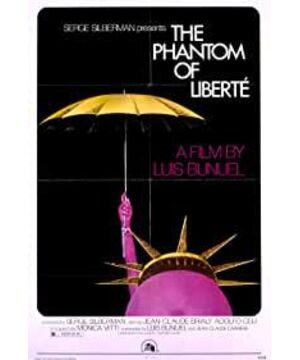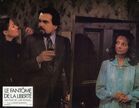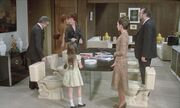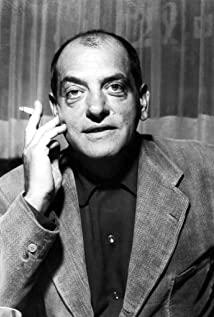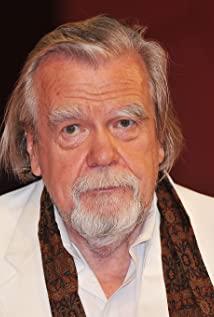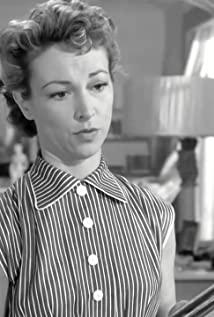A specter, the specter of communism, roams Europe. All the powers of old Europe, the Pope and the tsar, Metternich and Guizot, the radicals in France and the police in Germany, joined together for the holy encirclement of this ghost.
The opening paragraph of "Communist Manifesto" may be the entry point for interpreting Buñuel's film.
Whether it is a "phantom" or a "ghost", it seems to bring about a kind of confusion: does it exist?
Is Le fantôme de la liberté saying that you think you have freedom when it is all fictional and non-existent?
Indeed, during the entire viewing process, while admiring Buñuel’s subtle satire, I couldn’t help thinking about the “phantom of freedom”. Is it just an illusion, or is there a hidden shadow?
And when I went back to the French title, I was struck by something. Oh! fantôme, ghost!
Looking at the German version of the poster, it is indeed the same word as the "Communist Manifesto". So I'm back to the beginning of this exciting manifesto.
Combined with the picture at the beginning of the film. "Shooting the Rebels on the Night of May 3, 1808", who did the insurgents resist? Napoleon's army. What's behind Napoleon's achievements? Named after liberty and equality, the French Revolution, the result of the bourgeois revolution.
So I figured it out.
What Buñuel wanted to do was exactly the same thing that Marx and Engels wanted to do in the Communist Manifesto. It's just that they took a different approach to writing.
"The event takes place in Toledo in 1808, when Napoleon's army occupied the city, and the film was inspired by the Spanish romantic poet Gustavo A. Bego."
In 1848, when the Communist Manifesto was written, Marx and Engels saw various social movements against the existing order. The specter of communism is not a fictional image that does not exist, but a real roaming of the European continent, such as the League of the Righteous, which is exactly such a specter of communism.
Why ghost?
Because people do not understand their real demands, there is no real basis for revolution. Therefore, it (such as the League of the Righteous, a social movement that intends to resist the existing order) does not have the power to leverage the existing order and system, and it has no entity, but only a ghost.
But this ghost is real.
The effort made by the "Communist Manifesto" is precisely to allow this real ghost to understand itself, so that it can truly enter into the interior of capitalism, leveraging the entire capitalist system and bringing down capitalism. An inevitable transition of a link.
Then it will no longer be just a wandering ghost, but will become an entity participating in history, an entity with real power.
To let the ghosts, these social movements with a rebellious nature, understand themselves is to understand their principles and goals.
In other words, it wants to expose the truth of capitalist logic and the source of all inequality in bourgeois society.
The Communist Manifesto is not about what communism is, but about what it is against.
So when we go back to The Phantom of Liberty, aren't these hilarious satires also a manifesto?
In this passage of "Looking for the Little Girl Who Wasn't Missing But Beside You", the relationship between man and man is no longer a direct relationship, but is accomplished through form, through ridiculous bureaucracy. The solemn dialogue of parents, teachers, babysitters, police officers constitutes a "self-disciplined" system that declares her "absence". And the child's common-sense words—"but mom, I'm here"—are forcibly removed, "don't interrupt when the principal is talking" (mother) "answer when I ask you" (police).
This is not exactly what Lukács calls "reification".
There is no so-called real person, living person, what connects people to each other is automatic and rational production. This is the general fate of people in capitalist society, all objects that are not "reasonable" are eliminated, and all subjects that are not "reasonable" are not recognized.
Just as Lukács synthesizes Marx and Weber, Buñuel synthesizes both in this sense.
In the misrecognition of the photo, in the replacement of the restaurant and the toilet, a kind of "rationalization" thinking is turning man into a slave of his product, and it is precisely in this extreme irony that man's deprived freedom is highlighted.
This freedom is not given to the people in the film, but to us who are reflecting on the film.
This real ghost lingers in our time and space.
View more about The Phantom of Liberty reviews


